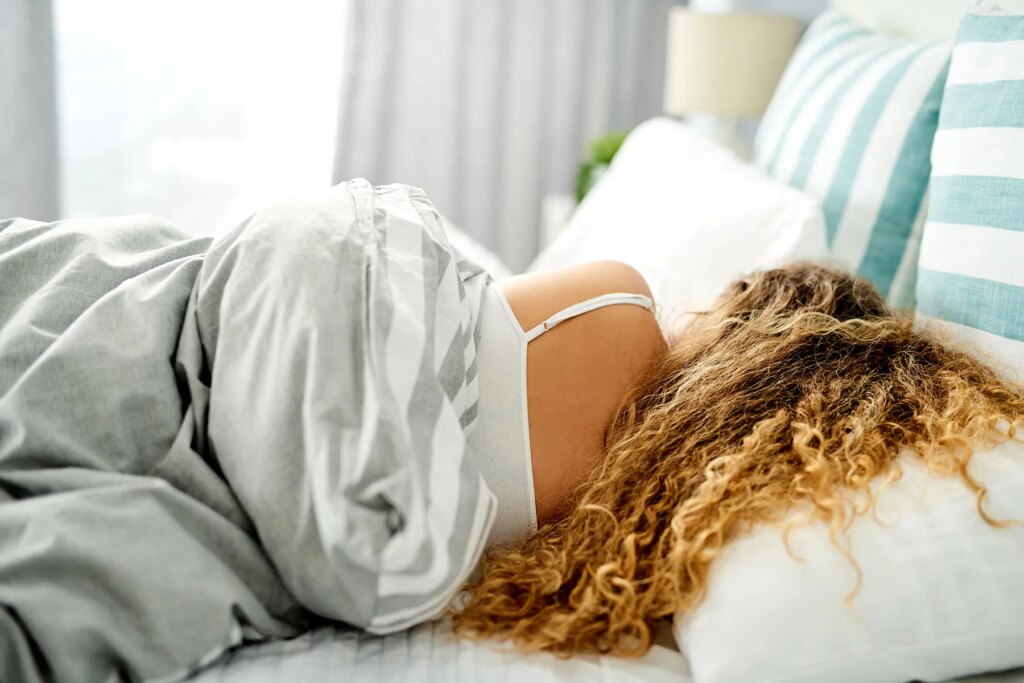Ask clinical psychologist Michael Breus, PhD, a.k.a. The Sleep Doctor, for his No. 1 tip for having more energy and sleeping better, and he doesn’t hesitate to share his own morning routine: He rises at 6:15 a.m. daily, drinks a big glass of water, and meditates as he waits for the sun to come up. Then at 7 a.m. sharp he walks his two dogs, Hugo and Moose, around the block, making sure to leave his sunglasses at home.
“Every single human, just as soon as possible after waking up, should go outside and get at least 15 minutes of direct natural light. Period,” says Breus, a Los Angeles-based sleep medicine specialist and co-author of the new book, Energize!Go from Dragging Ass to Kicking It in 30 Days.
Breus’s simple life hack reflects a growing body of scientific evidence linking ample exposure to bright light early in the day to everything from better sleep and clearer thinking to improved mental health and reduced risk of obesity and diabetes.
One study of 700 people, done at the peak of the COVID-19 pandemic, found that those who either spent 1 to 2 hours outdoors daily or spent their days in a brightly lit room were less likely to have trouble sleeping or report anxiety.
Another found that when people let natural light stream into their apartments by day for 1 week, they fell asleep 22 minutes earlier, slept more regularly, and were happier and more alert by day than during a week in which they pulled the blinds.
“Light is the single most important element for setting our circadian clock, or internal 24-hour rhythm, and morning light is key,” says Nathaniel Watson, MD, a sleep specialist and professor of neurology at the University of Washington School of Medicine.
Each of us has not only one master clock deep in our brain, but also a series of other clocks inside our tissues that manage when hormones are released, keeping our sleep-wake cycle, hunger patterns, and other daily rhythms humming along on a predictable cycle.
If you lived in a cave with no light at all, the hands on the master clock would still click away, but at about a 24.2-hour cycle, slightly out of sync with the clock society operates on. Each day, you’d drift further out of sync.
“Today, your watch would say it’s 7 a.m., but your biological clock might say it’s 6:50 a.m.,” says Mariana Figueiro, PhD, director of the Light and Health Research Center at Icahn School of Medicine in New York. “Tomorrow, your biological clock might say it’s 6:40 a.m., and the following day 6:30 a.m. And it would get harder and harder to get up.”
Open the blinds or step outside, and the instant that morning light streams into your eyes, it synchronizes your body clock with the 24-hour day in two critical ways:
- Specialized cells in your retinas tell your brain to stop making the sleep hormone melatonin.
- Your brain’s master clock sets a sort of internal timer, instructing the body to start making melatonin again about 14 hours later.
Morning light also nudges the body to crank up production of the stimulating hormone cortisol, getting your brain fired up for the day.
In one experiment, office workers got more bright morning light for 5 days. They found it easier to make decisions and scored 79% higher on cognitive tests.
Studies show that morning light may also affect the hormones leptin (the satiating hormone) and ghrelin (the hunger hormone) in ways that promote a healthy body weight.
And researchers at Northwestern University found that people who got most of their bright light exposure before noon weighed a little less — 1.4 pounds, on average — than those exposed to most bright light in the evening.
On the flip side, it’s best to minimize bright light at night, since it has the same awakening effect that it does in the morning.
“Light is like a cup of coffee,” says Figueiro. “It has a direct, acute effect and that is to maintain alertness, and that happens day or night.”
Bright, short-wavelength or “blue light” (the glowing screen on your laptop or smartphone) is particularly sleep-disrupting, as it most closely mimics the natural light from the sun that we evolved to wake up to.
Unfortunately, people spend about 87% of their time indoors these days, where environments are darker than they should be by day and lighter than they should be at night.
And the pandemic, which has prompted more people to work from home, has in many ways made things worse.
“A lot of times, you can get your morning light during your commute time,” Figueiro says. She notes that a bike ride or a walk from the train station to work can easily provide enough morning light to keep the circadian clock clicking on time, even on a cloudy day.
Instead, many of us now simply stroll from our bedroom to our computer. “People are missing out on that morning light. It worries me,” Figueiro says.
But the remedies are simple.
Try your best to get a minimum of 1 hour outdoors each day. That includes at least 15 to 30 minutes in the morning after daybreak. Another good time for a walk outside is around 1 to 3 p.m. in the afternoon, when the body produces another brief spike of melatonin.
“Instead of a coffee break when you start to feel sluggish in the afternoon, go outside and take a sunshine break,” Breus says. Leave your sunglasses off to get the full effect.
Face a window. If you spend most of your time indoors during the day, situate yourself so you face the window and open the shades whenever possible.
If your daytime room has no window, or just a small one, add more light. Figueiro recommends a table lamp on each side of your computer (1,500 lumens each) with a light-colored shade that diffuses the light. A plain white lightbulb will do, but for greater effect, go for blue light or put the light closer to your eye.
Get an extra boost. If you drive to work in the dark, travel across time zones often, or have trouble getting natural morning light, using a “dawn simulator” or “light therapy” lamp in the morning can also help, says Watson: They can deliver a whopping 10,000 lux of bright light. That’s about five times the brightness of outside light on a very cloudy day.
Set a curfew for screens. To minimize light at night, shut off your electronics (or at least dim the display and set it so the words are white on black) 2 hours before bedtime. If you really have trouble winding down, consider wearing blue-light blocking glasses 90 minutes before bed. Also use warm, low-level, dim lighting in your bedroom and living room at night.
And yes, you also need to keep a consistent schedule, going to bed at the same time each night and rising at the same time each day. It’s simple – but not easy.
“Sleep thrives on consistency and routine.” says Breus. As a sleep consultant to celebrities and athletes in Los Angeles, he knows how hard this can be. But, as he says, if you want to sleep better, it’s worth it.








